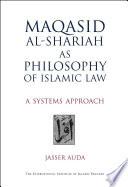
The Rule of Law, Freedom of Expression and Islamic Law
The importance of the rule of law is universally recognised and of fundamental value for most societies. Establishing and promoting the rule of law in the Muslim world, particularly in the Middle East, North Africa, and Central Asia, has become a pressing but complicated issue. These states have Muslim majority populations, and the religion of Islam has an important role in the traditional structures of their societies. While the Muslim world is taking gradual steps towards the establishment of rule of law systems, most Muslim majority countries may not yet have effective legal systems with independent judiciaries, which would allow the state and institutions to be controlled by an effective rule of law system. One important aspect of the rule of law is freedom of expression. Given the sensitivity of Muslim societies in relation to their sacred beliefs, freedom of expression, as an international human rights issue, has raised some controversial cases. This book, drawing on both International and Islamic Law, explores the rule of law, and freedom of expression and its practical application in the Muslim world.
- ISBN 13 : 1782257489
- ISBN 10 : 9781782257486
- Judul : The Rule of Law, Freedom of Expression and Islamic Law
- Pengarang : Hossein Esmaeili, Irmgard Marboe, Javaid Rehman, Irmgard Marboe, Javaid Rehman, Irmgard Marboe, Javaid Rehman, Irmgard Marboe, Javaid Rehman, Irmgard Marboe, Javaid Rehman,
- Kategori : Law
- Penerbit : Bloomsbury Publishing
- Bahasa : en
- Tahun : 2017
- Halaman : 312
- Google Book : https://play.google.com/store/books/details?id=Des8DwAAQBAJ&source=gbs_api
-
Ketersediaan :
This book, drawing on both International and Islamic Law, explores the rule of law, and freedom of expression and its practical application in the Muslim world.









